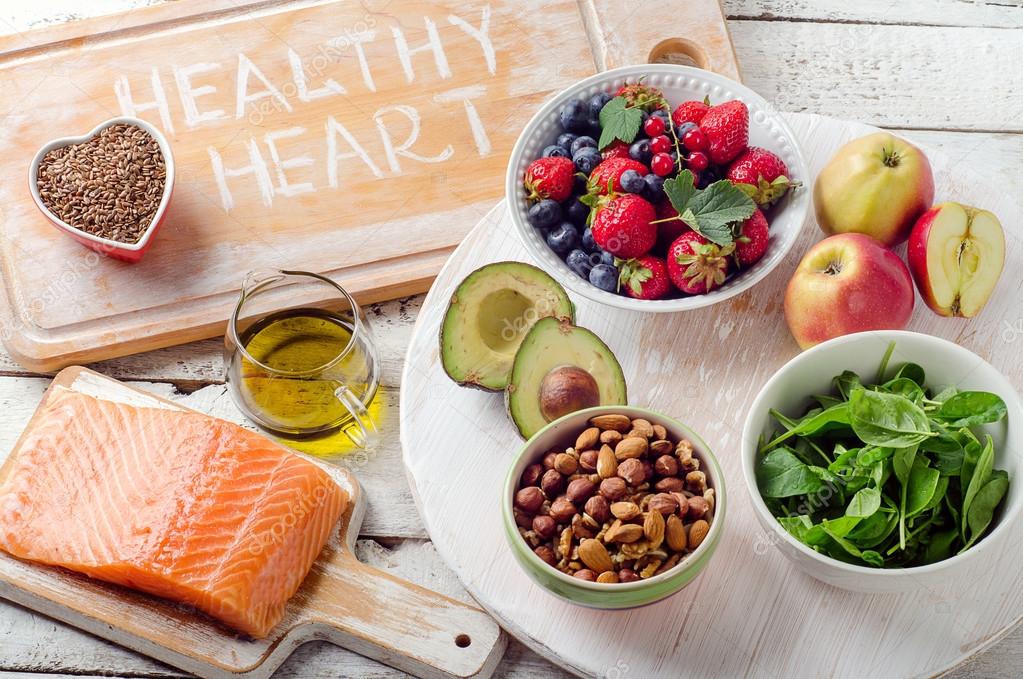
To prevent heart attacks, it is important to avoid unhealthy foods and eat high in nutrients, fiber, and healthy fats. While the number of deaths from heart disease has declined in recent years, heart disease remains the leading cause of death worldwide. The good news is that we now know much more about preventing cardiovascular disease, which includes both strokes and heart attacks. A healthy diet and a healthy lifestyle supplemented by regular exercise can make a huge difference. We have compiled a list of 30 foods to eat to reduce your risk of cardiovascular disease.
Also Read: Ten Fitness Tips For Those Over 50
1. Salmon
Because it contains large amounts of omega-3 fatty acids, salmon helps reduce the risk of arrhythmia (irregular heartbeat) and atherosclerosis (build-up of plaque in the arteries) triglyceride levels. Doctors recommend eating fish, and preferably fatty fish, at least twice a week. Omega-3 fatty acids are also found in food supplements.
2. Oatmeal
Oatmeal is rich in soluble fiber, which has the particularity of reducing cholesterol. They act like a sponge in the digestive system and absorb cholesterol to be eliminated from the body and not absorbed into the bloodstream. Dieticians recommend avoiding instant oatmeal because it often contains sugar. It is better to choose old-fashioned or even quick-cooking oatmeal. Other whole-grain foods like bread, pasta, and corn grits are also good for the heart as long as they contain whole grains.
3. Blueberries
Blueberries, but also strawberries and other berries. According to a recent study, women aged 25-42 who eat more than three servings of blueberries and strawberries per week have a 32% lower risk of having a heart attack. This study's authors attribute this benefit to known compounds under the name of anthocyanins and flavonoids (which are antioxidants) that can lower blood pressure and dilate blood vessels. Anthocyanins give plants their red and blue color.
4. Dark Chocolate
Several studies agree that dark chocolate is good for your heart. For example, a 2012 study found that consuming chocolate daily could reduce non-fatal heart attacks and strokes in people at high risk for these problems. Please note: real dark chocolate must be made from at least 60 to 70% cocoa. Dark chocolate contains flavonoids called polyphenols, which help lower blood pressure. On the other hand (and unfortunately), milk chocolate and most chocolate bars are not recommended.
5. Citrus
Fruits Women who consume large amounts of flavonoids, such as those found in oranges and grapefruits, have a 19% lower risk of having an ischemic stroke (caused by a clot). Citrus fruits are also high in vitamin C, linked to a lower risk of heart disease. Beware of citrus juices that contain added sugar. Also, be aware that products containing grapefruit may interfere with the action of drugs intended to lower cholesterol.
6. Soy Soybean
products, including tofu and soy milk, add protein to your diet without adding unhealthy fats and cholesterol. Soy products contain high levels of polyunsaturated fatty acids (good for your health), fiber, vitamins, and minerals. What's more, soy can lower blood pressure in people who eat a diet high in refined carbohydrates. Finally, soy protein can lower LDL or "bad" cholesterol compared to milk or other proteins.
7. The Potato
There is no reason to shun potatoes just because they are stuffed with this "bad" starch. As long as they're not in the form of fried foods, potatoes are good for your heart. They are high in potassium, which can help lower blood pressure. They are also high in fiber, which can reduce the risk of heart disease.
8. Tomatoes
You should eat more tomatoes! As with potatoes, tomatoes are high in potassium, which is very good for the heart. Also, they are a good source of lycopene. Lycopene is an antioxidant carotenoid that can help eliminate "bad" cholesterol, keep blood vessels open, and lower a heart attack risk. Plus, since they're low in calories and low in sugar, they're compatible with a healthy diet.
9. Watermelon
The cultivation of watermelon can be traced back to ancient Egypt, over 5000 years ago, in the Nile valley. Star fruit of the summer, this refreshing fruit is composed of 92% water. It hydrates, but it also contains many vital elements for the body, such as citrulline, which is used in the synthesis of arginine, an amino acid that promotes the healing process and the division of cells. Rich in antioxidants such as lycopene (red tomatoes also contain them), watermelon contributes to a healthy heart. So remember to decorate your breakfast or your snacks with a slice of watermelon.
10. Nuts
Nuts include almonds, walnuts, pistachios, peanuts, and macadamia nuts, the fibers of which are great for your heart. These fruits also contain vitamin E, which helps lower bad cholesterol. Some nuts, like walnuts, are also high in omega-3 fatty acids. Be careful, however, avoid salted nuts.